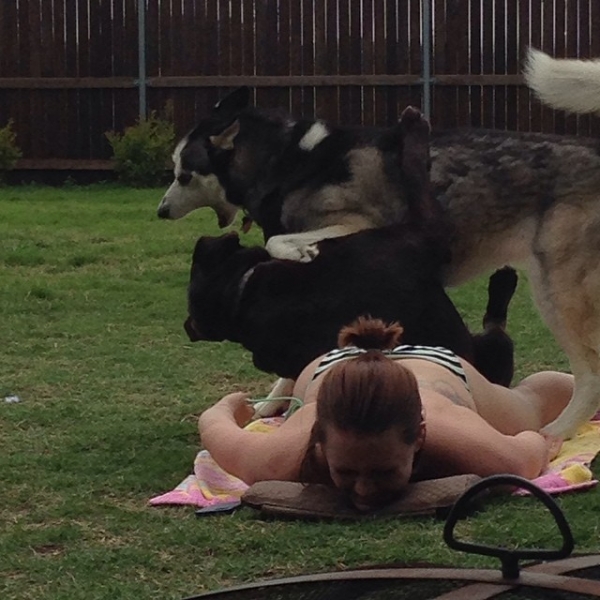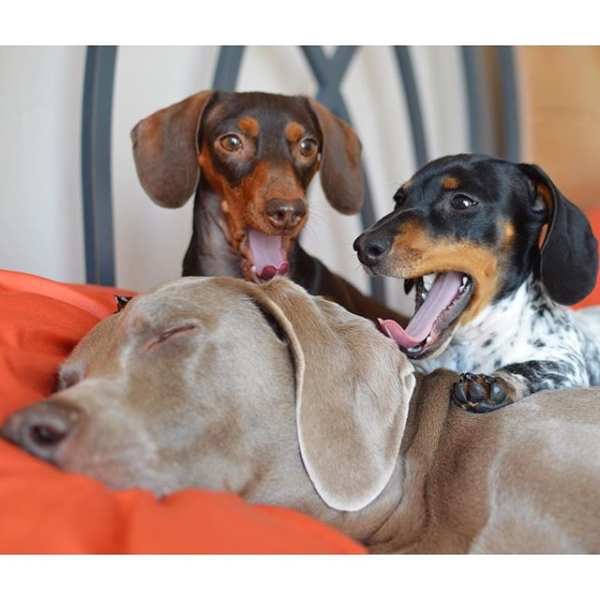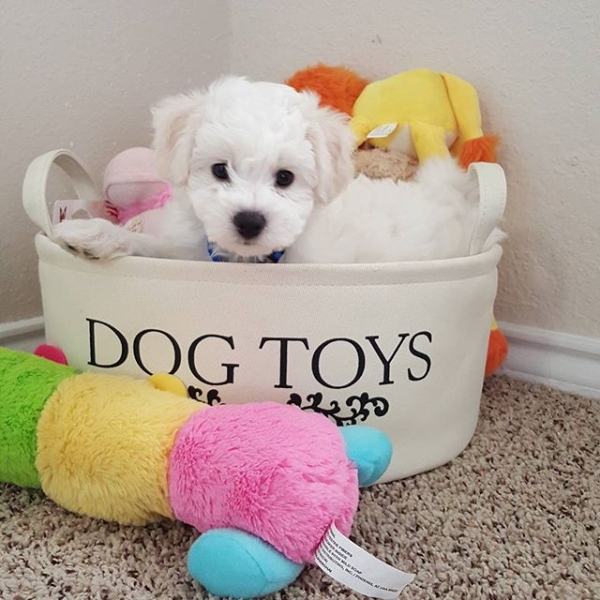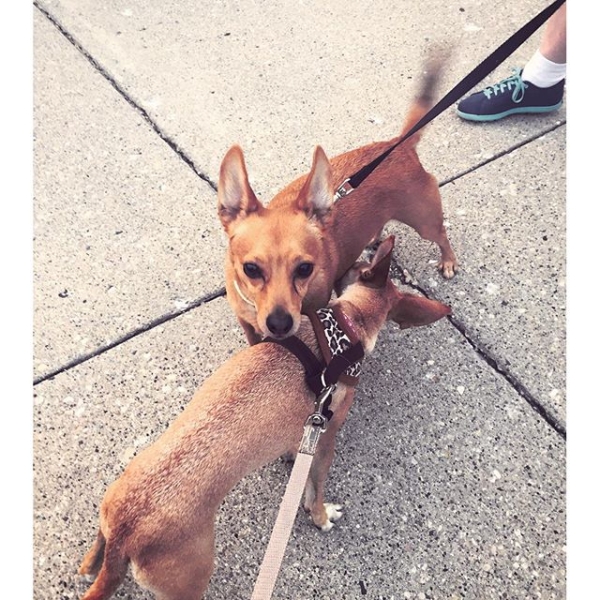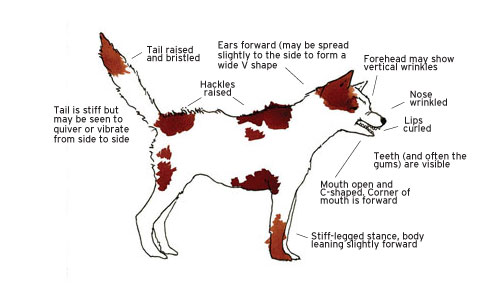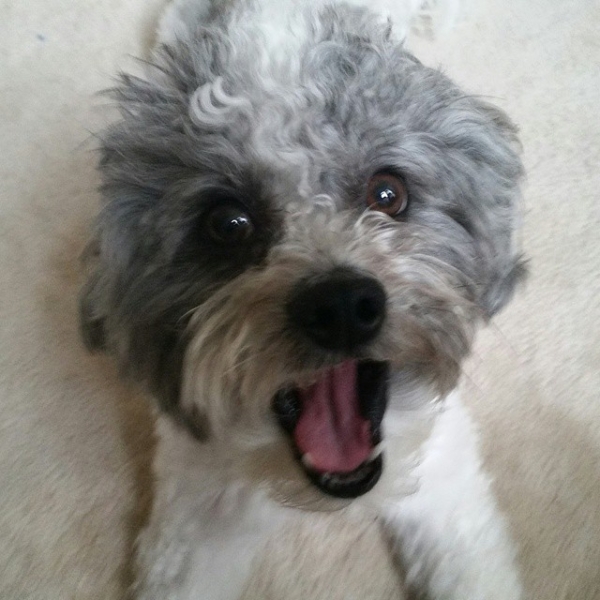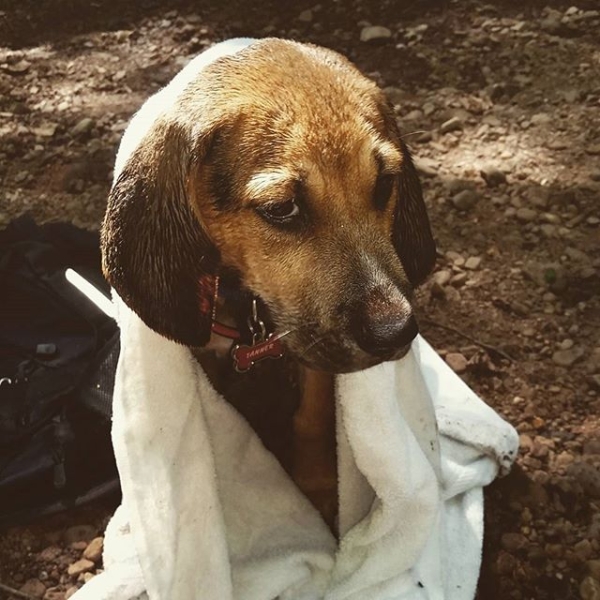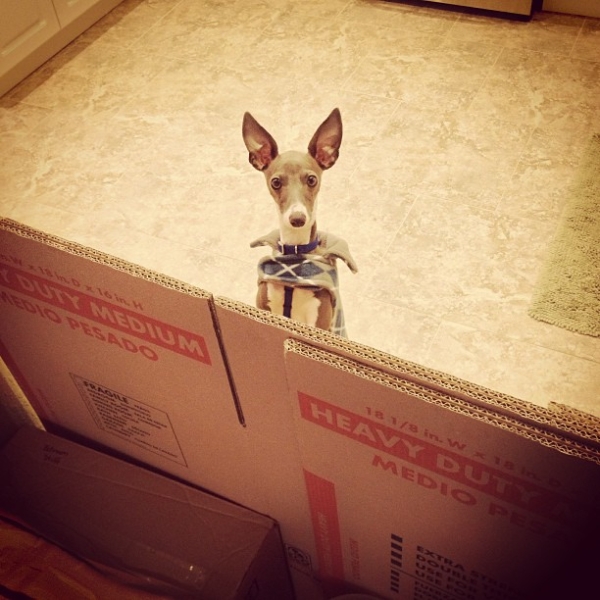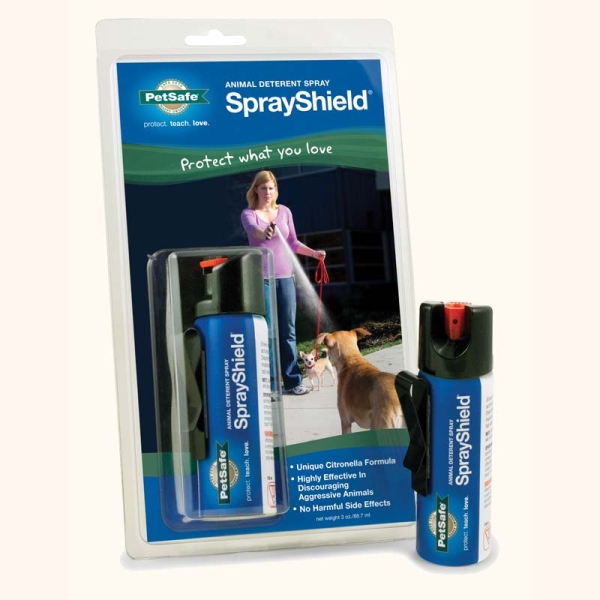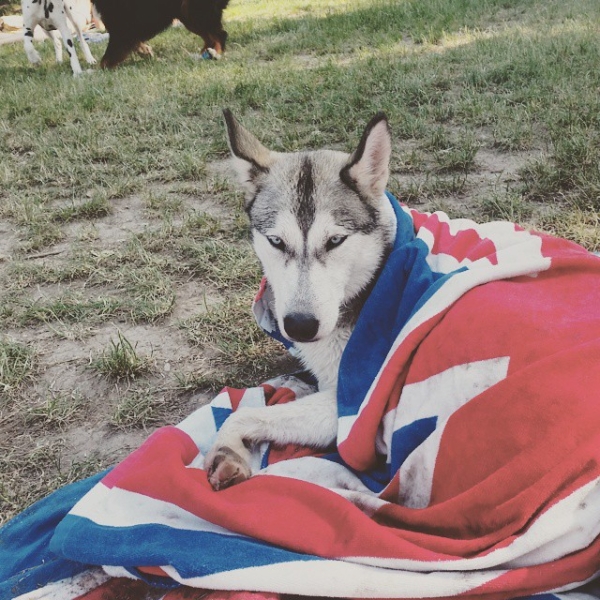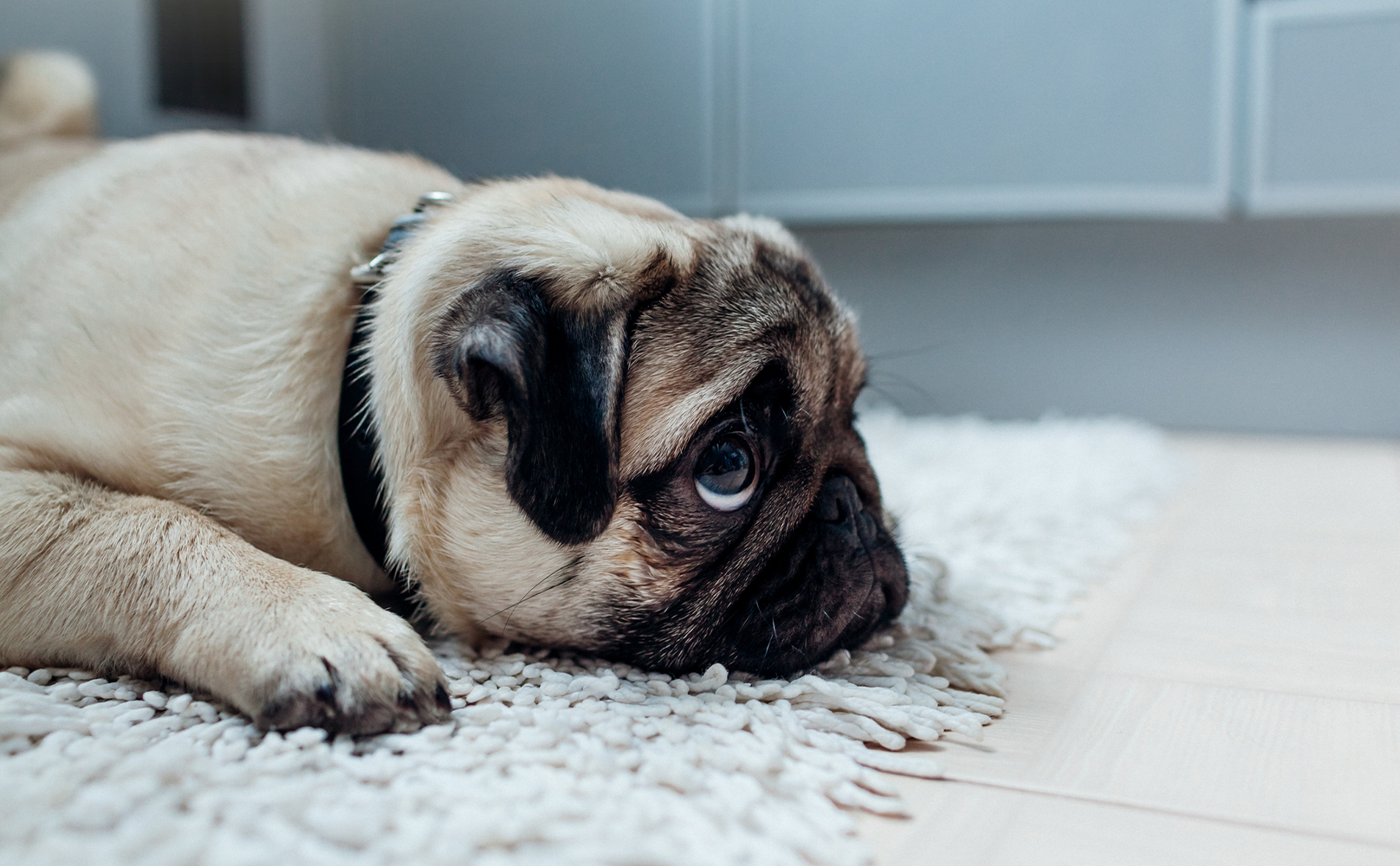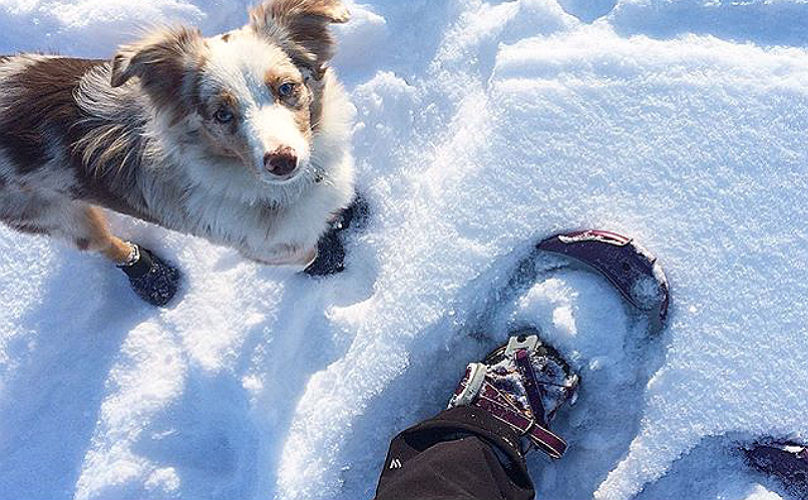It happens. It actually happened to me this summer. My uber-submissive Labrador, Raven, got into a spat with another little fluff-butt diva she has known for years.
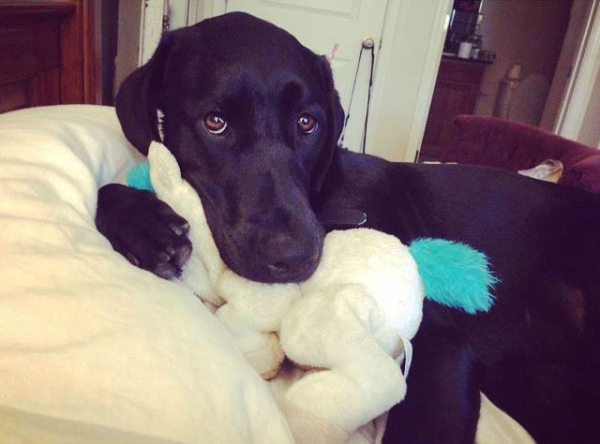

Raven has been socialized and trained since she was a puppy, and had never been dog-aggressive in the past (she is even a certified therapy dog!). I always thought she would choose flight over fight (I mean she’s a big weeny!) so you can imagine my surprise when Pixl snapped and Raven lunged. The fight only lasted a few seconds, but because of the massive size difference, a few seconds was all it took.
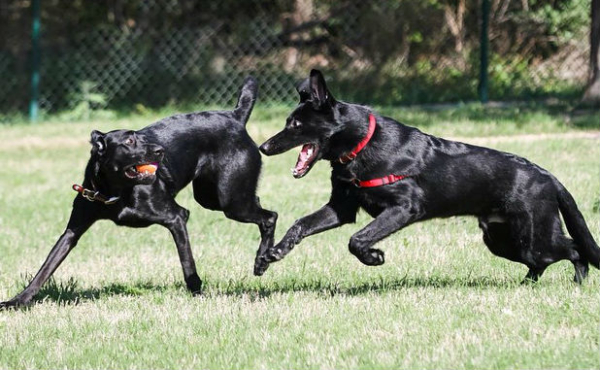

Pixl came out with permanent damage to her right eye, and we were told that she may or may not ever see out of it again. I was left with an $800 vet bill, and felt sad, confused, and angry–my dog did this?! My sweet dog who has always played so well with others?! How could we have prevented this? How could we have stopped the fight a few seconds earlier?
Here you’ll find answers to those questions, as well as other information for the situation we hope never happens to you.
1. Monitor your dogs during play
Although usually in good fun, rough-housing can sometimes get out of hand. If play gets too rough, call a time out and separate both dogs for a few minutes, or until everyone calms down.
2. Recognize size differences
Raven and Pixl are a great example of this. If there is a considerable size difference between two dogs, remember that the smaller dog is at a higher risk of getting injured during a fight, or even during play. Having your dog play with similarly sized friends at a dog park is especially important, since most of the dogs are likely strangers. If your park has two separate play areas, one for large dogs and one for small dogs, keep your dog in its size appropriate play area. It’s for the safety of your dog, and others.
3. Assume no one knows how to share
There are a variety of resources a dog may feel the need to protect; toys, food, water, dog bowls, their bed, etc. If a pup-friend comes over to play, always put all resources away. Even though my dog doesn’t resource guard, the other dog did, and she reacted. By putting resources away, you are helping prevent a situation where your dog might feel stressed.
4. Introduce new dogs on common ground
Finding a neutral area is as easy as walking your dog around the block! Before having the dogs come close enough for contact, simply lead the dogs past one another (with both dogs on leash). Keep things brief at first, to prevent over-stimulation, and remember to take things nice and slow.
5. Watch body language
Being mindful of body language is always important—it’s your dog’s first language! Recognizing a dog’s body language and removing them from the situation is one of the best ways you can prevent a dog fight.
Fear/Aggression Signals (Defensive Threat)
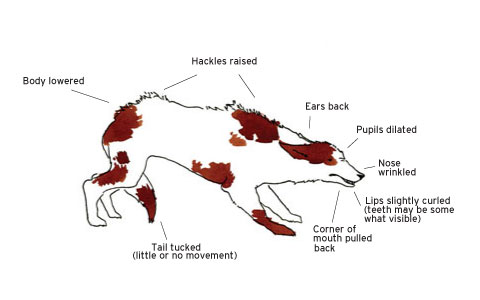

Dominance/Aggression Signals (Offensive Threat)
Preventing a fight is ideal, but not always possible. If a fight happens don’t panic and don’t be too hard on yourself or your dog. Sometimes dogs communicate in ways we can’t see or understand.
[bp_related_article]
Here are some suggestions on how to safely and effectively remove your dog from a fight:
6. Startle the Dogs
Make loud noises, like yelling, clapping your hands, or banging two objects together. Note: if your startling method hasn’t worked after 3 seconds, it’s time to move on and try another method.
7. Use Water
If a source of water is nearby, try spraying the dogs with a hose or dumping a bowl of water over their head.
8. Create a Barrier
Slide an object between the two dogs to form a barrier. Try and create a barrier that not only blocks physical contact with the other dog, but eye contact as well.
9. Use Citronella Spray
Consider keeping citronella spray on hand. Most dogs really dislike the smell of citronella, so directing the spray towards a dogs nose may help break-up a fight.
10. Use a Blanket
Throw a blanket over both dogs. If the dogs can’t see, they might stop fighting.
11. Physically Separate the Dogs
Physically separating the dogs should always be a last resort, as it can cause serious harm to both you or your dog. Although it’s sometimes our first instinct, never reach out and grab your dog by their collar during a fight–this puts you at a very high risk of getting bit. If none of the above methods have worked and you need to physically separate the dogs, try the following steps, provided by the ASPCA:
You and a helper or the other dog’s pet parent should approach the dogs together. Try to separate them at the same time. Take hold of your dog’s back legs at the very top, just under her hips, right where her legs connect to her body. (Avoid grabbing her lower legs. If you grab a dog’s legs at the knees, her ankles or her paws, you can cause serious injury.) Like you’d lift a wheelbarrow, lift your dog’s back end so that her back legs come off of the ground. Then move backwards, away from the other dog. As soon as you’re a few steps away, do a 180-degree turn, spinning your dog around so that she’s facing the opposite direction and can no longer see other dog.
Part of what I learned from this situation is that you shouldn’t feel angry or ashamed at your dog for getting into a fight–sometimes it’s an inevitable (and unfortunate) way of how dogs communicate.
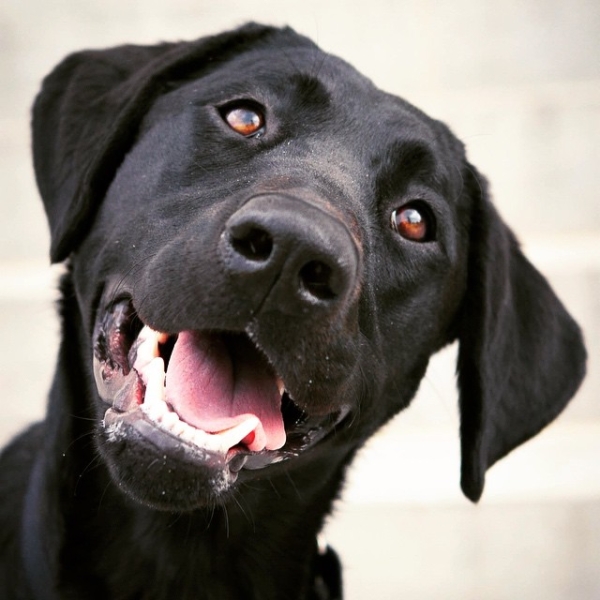

The ASPCA says “most dogfights, especially those between well-socialized dogs, don’t result in injury. A dogfight is usually the equivalent of a brief, heated argument with a friend or family member.” Socialization, prevention, awareness, and understanding, are all ways we as pet parents can help prevent our dogs, and other dogs, from becoming injured during moments of dog communication gone-wrong.
Sources: ASPCA

